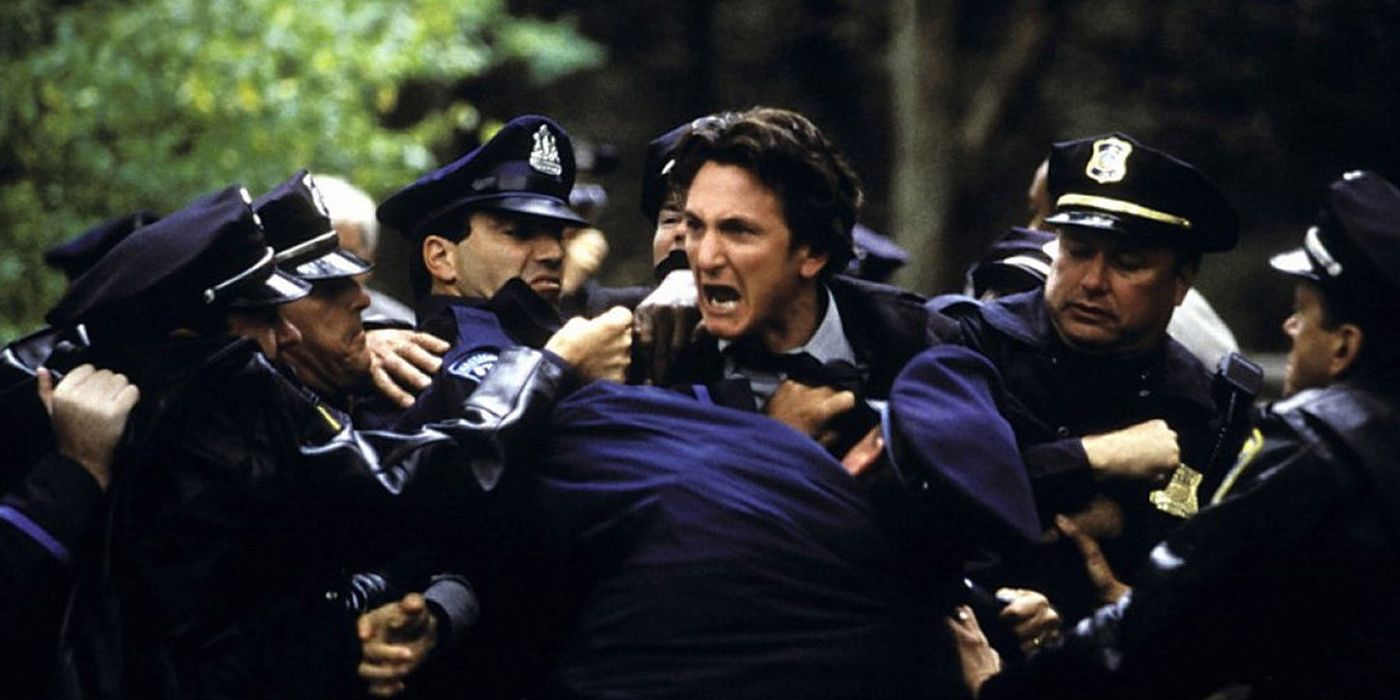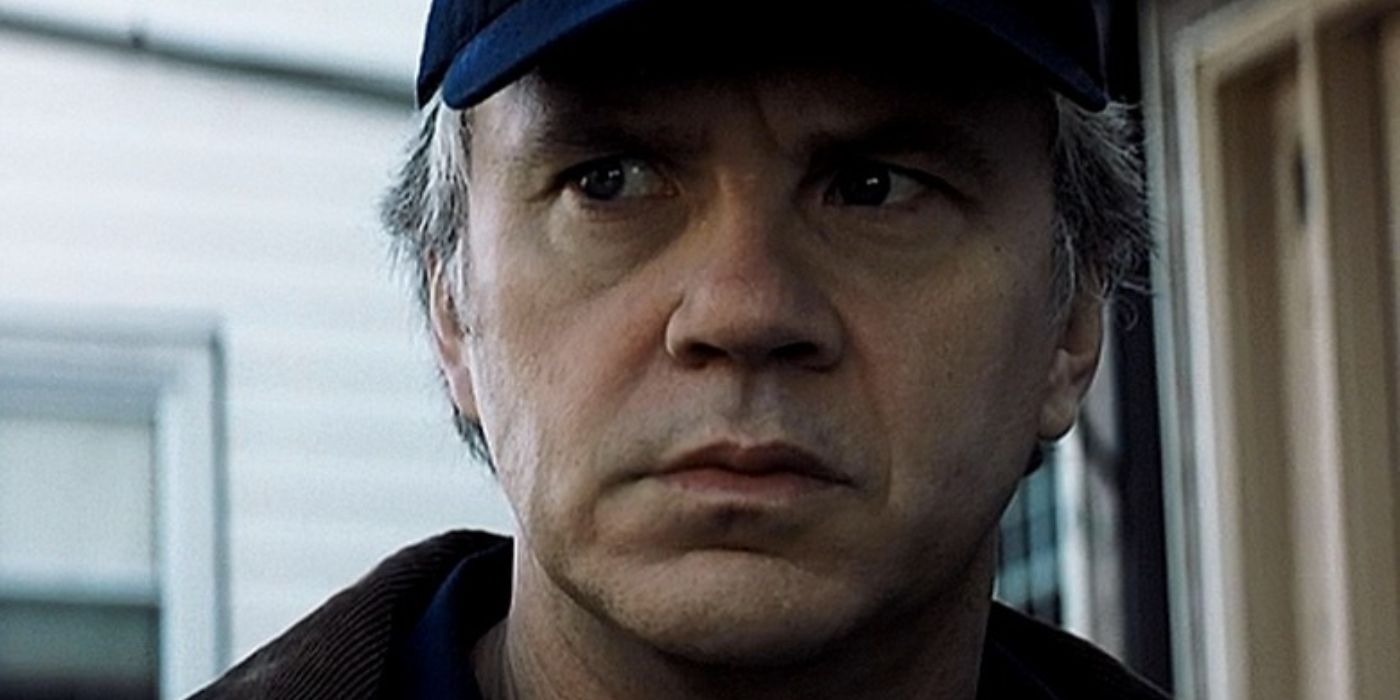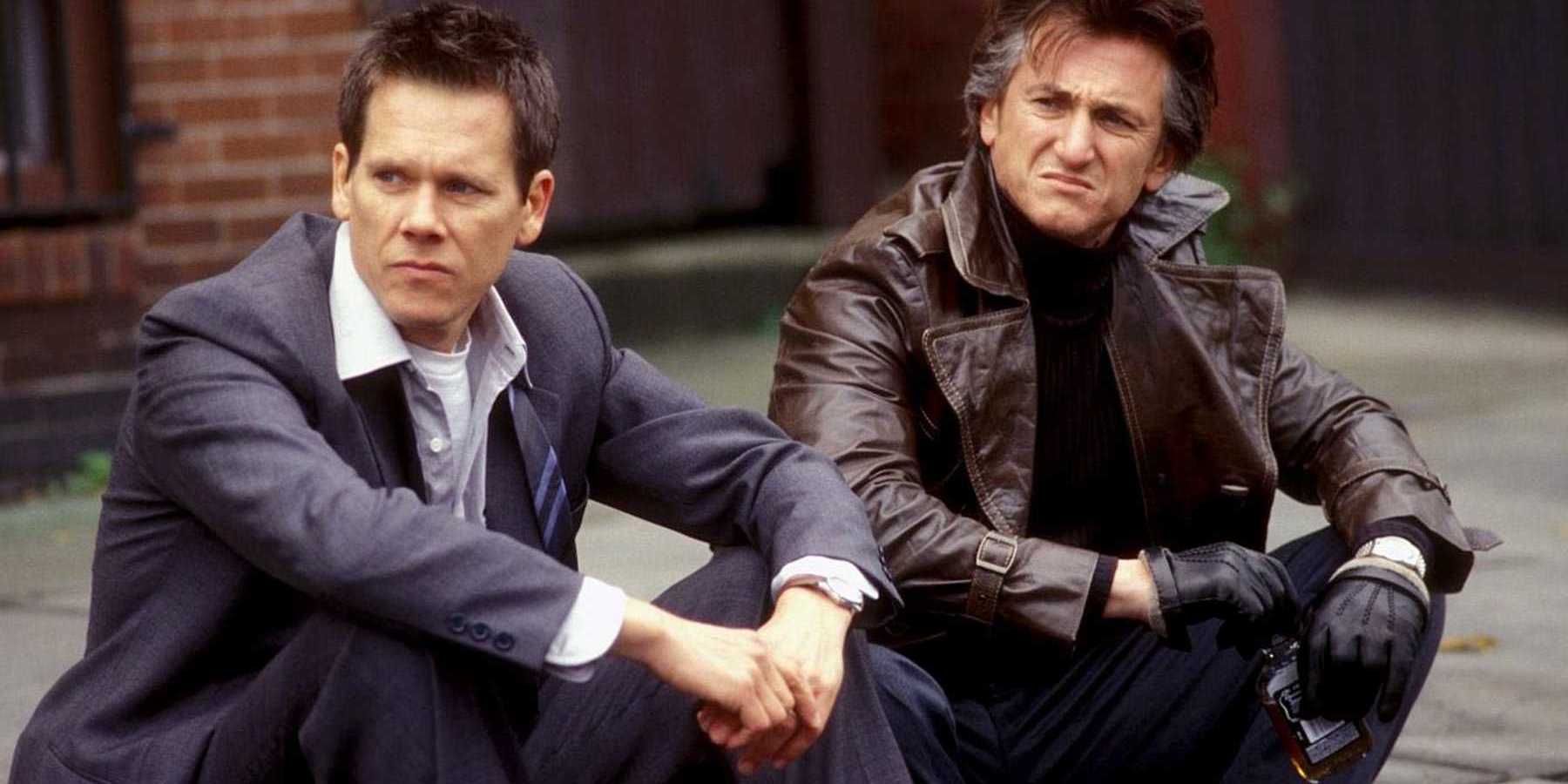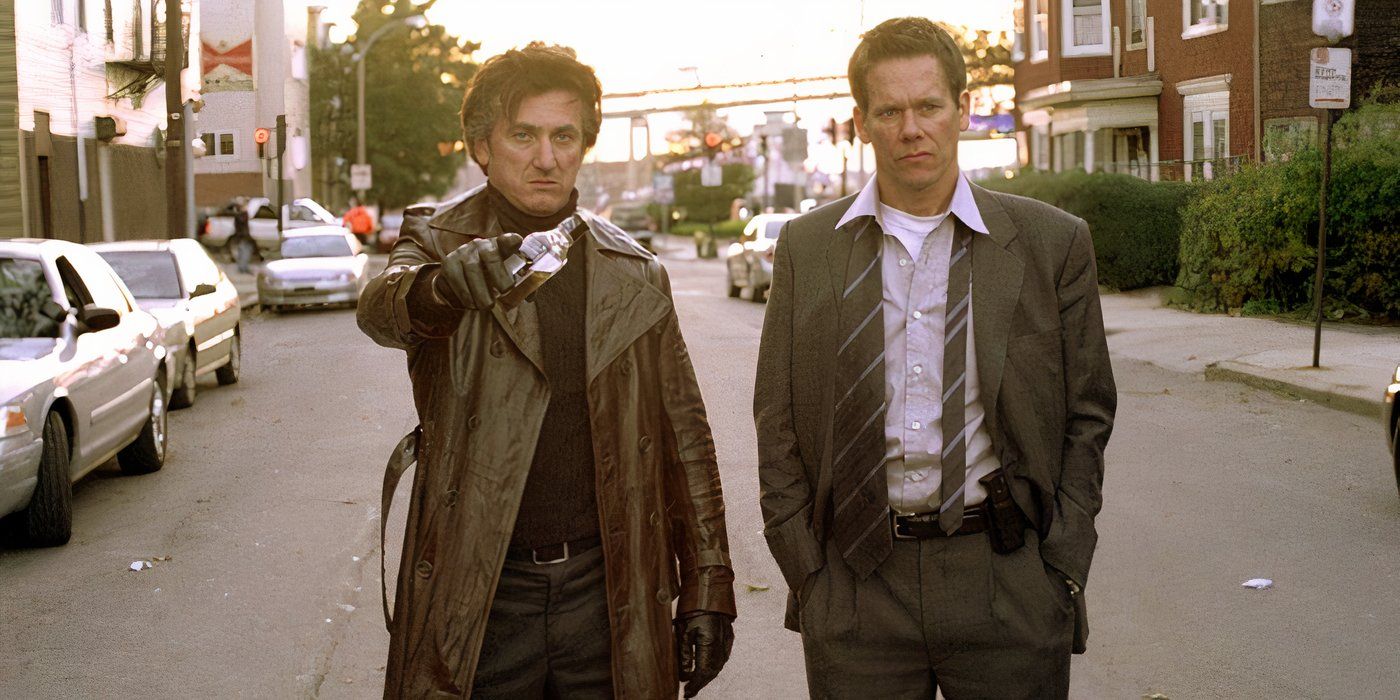
Content warning: This article contains discussions of sexual abuse and violence.
Mystic RiverThe ending offers a disturbing twist that ties the murder mystery to each character's drama. Directed by Clint Eastwood, the 2003 film tells the story of three estranged childhood friends, Jimmy, Dave and Sean, whose lives are marked by a traumatizing memory from their past. When Jimmy's teenage daughter is found brutally murdered, two parallel investigations take place and bruises from the past threaten to destroy the lives of the three friends again. All this leads to Mystic River final, which brings a shocking confrontation and the revelation of the murder.
Mystic River addresses many disturbing topics in a sensible and respectful way, providing a solid character study that successfully connects the drama to the gripping mystery. Set in a small town, the film presents the habits and routines of each character, carefully exposing clues about who is trustworthy and who is not. It features some of the best performances in an Eastwood-directed film, with Oscar-winning roles for Sean Penn and Tim Robbins. These performances feature heavily in the final scenes and moving conclusion.
Who Killed Katie Markum (and Why)?
A childish prank results in murder
Although Jimmy remains convinced that Dave killed his daughter in Mystic River, the real culprits are "Silent Ray" Harris and John O'Sheawho kill Katie after a prank gone wrong. Silent Ray is Brendan's mute brother, who dated Katie and had plans to run away with her to Los Angeles. After discovering the disappearance of his father's gun, which was hidden in his house, Brendan immediately suspects Silent Ray and his inseparable friend O'Shea, brutally beating them until O'Shea holds a gun to his head.
Jimmy spends the entire film trying to find the reason for his daughter's murder when, in the end, there is no motivation at all.
The police arrive just in time and discover that the two teenagers wanted to scare Katie and accidentally fired Harris' gun. To prevent her from telling anyone, they chased her and killed her. The twist is anticlimactic, but it makes sense with Mystic Riverscenario, which revolves entirely around motivations. Jimmy spends the entire film trying to find the reason for his daughter's murder when, in the end, there is no motivation at all. The killers are children and barely understand the gravity of what they did.
For the Mystic River In the end, the revelations bring the narrative full circle: just as Jimmy, Sean and Dave had to witness violence and cruelty at such a young age, Brendan, Silent Ray and O'Shea will always bear the weight of Katie's murder, directly or indirectly. These characters are born into tragedy and mature earlier than they should, leading to dire consequences. It's more than possible that a few decades after Katie's murder, there is another body in Mystic River, and the three boys definitely had something to do with it.
Why did Dave confess to the crime (and did he kill someone)?
Dave's childhood trauma leads to his tragic death
Mystic River is among Clint Eastwood's favorite films he's made, and he knows his strong performances are vital to the successful outcome. Tim Robbins gets the film's most mysterious role, Dave, a character whose past and present actions are never fully shown, forcing viewers and characters to figure it out on their own. It is never known exactly what those two men did to him, but it is clear that he was the victim of serious sexual abuse for days, which resulted in painful traumas that he never fully overcame.
In the present, Dave's shifting mental state remains forgotten by his family and friends, who, instead of helping and protecting him, make him the number one suspect in Katie's murder. His loved ones have manipulated him so much that he doesn't even know what to believe anymore. When Jimmy says he'll let him go if he confesses to Katie's murder, Dave actually thinks this is his chance to make things right, but Jimmy brutally kills him.
Dave didn't kill Katie, but he confesses to Jimmy why he would kill her if he ever did: she reminded him of the youthful dream he never had because his painful childhood memories consumed his mind entirely. He looked at her and wondered what would have happened if Jimmy had gotten into that car instead of him. However, it was Dave who got into the car and, in the final moments of his life, hated Jimmy for it.
Mystic River it's also an anti-revenge film: the night Katie died, Dave beat a child molester to death after catching him abusing a child; Still, Dave didn't feel like the hero he thought he was for saving the child. His mental state only worsened. While confessing to another crime isn't a good alibi, it could have saved Dave's life if Jimmy had believed him. Since no one finds the molester's body until Jimmy kills Dave, there is nothing to confirm that Dave is telling the truth.
How Dave's kidnapping shaped Jimmy, Sean and Dave's lives
Each man followed a different path after the childhood event
Dave's kidnapping in Mystic River prematurely broke the innocence that bound Jimmy, Sean and Dave's friendship, abruptly forcing each of them to mature and face the violent world around them. Befitting Clint Eastwood's status as a Western icon, this modern-set film still has some notable Western elements, from the lawless characters to the world of desolation presented.
Of the three friends, Dave was hit the hardest; Although he managed to escape his captors, something broke inside him forever. Although he tried to maintain some of his innocence, a terrible shadow always loomed over him, symbolized by the sounds of a "bad wolf" chasing him through the forest.
Jimmy, unable to overcome the guilt he feels over Dave's kidnapping, He becomes a violent and impulsive man who loses faith in humanity. Sean represents the opposite of Jimmy: the tragedy he witnessed as a child made him want to end the cruelty of the world. He is a man of principles and, although he can be a good police officer, childhood trauma prevents him from being a good husband or a good friend.
The true meaning of the end of Mystic River
How the titular river symbolizes the story's tragedy
Mystic River exposes an endless cycle of pain and repressed feelings that lasted decades. The Mystic River is the key to understanding the film's symbolism: a river constantly renews its waters but remains inherently the same, and these characters wear different masks to cover up their sad secrets but remain intrinsically the same. THE the lack of communication between them only guarantees that the same tragedies will occur over and over again: Jimmy plays "Just Ray" Harris's body in the river, and even though the waters have changed over the years, Harris's children indirectly avenge their father by killing Jimmy's daughter.
Is the ending of the book Mystic River different?
There are only minor changes between Dennis Lehane's novel and the film
The best thing about Clint Eastwood Mystic River is that he made few changes to his film's source material. This works well, as Dennis Lehane already had a great story put together and it only needed to be changed a little to make it into a film. Screenwriter Brian Helgeland (Los Angeles Confidential) even kept much of the novel's dialogue intact. Both the book and the film have a brooding pace that's more reflective than a murder mystery, and that's important for the ending.
Many changes occur in character development, which takes place in the first 100 pages of the book, before Katie's body is found.
Of course, changes must be made to a 450-word novel to condense it into a two-hour film. Many changes occur in character development, which takes place in the first 100 pages of the book, before Katie's body is found. The film also deemphasizes many female characters, focusing almost exclusively on the three former childhood friends. This helps the novel focus more on the humans and less on the mystery.
This makes the ending shine even more in the book than on the big screen. The film is a tragedy, with Jimmy realizing he killed his old friend and realizing too late that he was innocent. The book is an even more incisive look at this moment. In both cases, Jimmy seems almost relieved to have killed Dave by eliminating the one thing he feels most guilty about. Sean knows something happened, although he can't prove it. Mystic River It's a tragedy in both cases, but the book shows how broken all three men are.
How Mystic River's Finale Was Received
Critics pointed to the tragedy of Dave's end
At the time of its release, Mystic River was Clint Eastwood's most acclaimed film since winning Best Picture Unforgivable. The film received strong reviews from critics, as well as six Academy Award nominations (two of which it won). While the acting and direction were the main talking point among critics, the ending was also widely discussed, less about how it solves the murder mystery but more about the consequences of Dave's death.
Mystic River Oscar Nominations:
|
Best Photo |
Robert Lorenz, Judie G. Hoyt and Clint Eastwood |
Named |
|
Best Director |
Clint Eastwood |
Named |
|
Best Actor |
Sean Penn |
Winner |
|
Best Supporting Actor |
Tim Robbins |
Winner |
|
Best Supporting Actress |
Marcia Gay Harden |
Named |
|
Best Adapted Screenplay |
Brian Helgeland |
Named |
However News week Critic David Ansen was largely positive on the film as a whole, he pointed to one aspect of its final moments that felt forced, specifically the speech given by Jimmy's wife Annabeth, in which she praises Jimmy for killing Dave because it shows his strength as a father, protecting his children even if he was wrong:
In the coda, the transformation of Penn's wife (Laura Linney) into a Lady Macbeth figure seems to come out of nowhere.
However, other critics praised the film for the way it dealt with the idea of masculinity and, in particular, for Clint Eastwood's subversion of the concept.. Looking at Eastwood's career in Hollywood, he was often seen as the pinnacle of stereotypical masculinity and the strong, silent type. In fact, many of his directorial efforts have leaned further into this persona. However, Salon Critic Stephanie Zacharek pointed out that Eastwood's ending seems to point the finger at a society that would let a sexually abused man suffer in shame:
[Eatwood] puts us right in Dave's shoes and silently asks the question, with all the indignation it demands: what it must be like to be a man, in a community like this, when a sexual crime has been committed against you account against you?
Likewise, the legendary critic Roger Ebert spoke of Mystic RiverThe ending of Jimmy and Sean finally realizing too late the pain Dave has lived with for so long and how they finally admit that they left their friend behind when he needed them most:
[M]Maybe they didn't fully understand what happened to him, but in a certain sense they no longer felt the same way about their violated friend - whose name, unfinished, remains in the concrete like a life interrupted in the middle of the road.
Mystic River
Mystic River, directed by Clint Eastwood, tells the story of three childhood friends – Jimmy, Dave and Sean – whose lives are disrupted by a tragic family event. Their bonds are tested as they confront past traumas and navigate the complexities resulting from crime and justice.
- Release date
-
October 15, 2003
- Writers
-
Brian Helgeland, Dennis Lehane
- Execution time
-
138 minutes



